Have we already reached peak globalization?
The huge questions that Brexit poses for the Three Amigos, free trade, and the theories political parties align with
Share
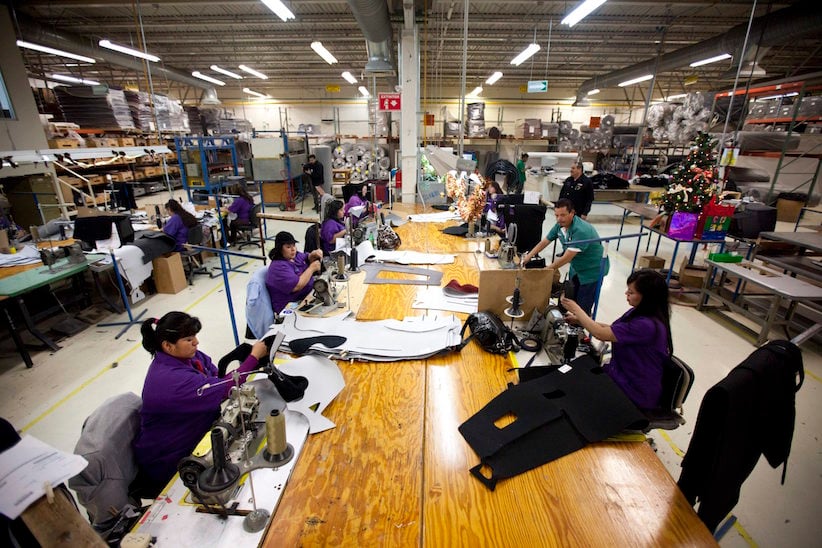
To this day, along the banks of the Thames in London, you can see people mudlarking, an old practice of looking for loot in the shoreline muck. Mudlarkers are now mostly hobbyists who find the clay tobacco pipes used by long-ago dock workers, but for hundreds of years, mudlarking was an occupation of the disaffected. Left behind by the booming global business of London, the poor were reduced to picking up washed-up scraps. In the wake of the Brexit vote to leave the European Union—a turbid combination of Brussels-loathing, anti-globalization antipathy and a toxic dose of xenophobia—it’s hard not think of it all as revenge of the mudlarkers.
The protectionist resentment of the U.K.’s political mudlarkers is the very same isolationist populism that fuels both Donald Trump on the right and—economically—the residual movement of Bernie Sanders on the left. “They called on a lot of anger among the British electorate, people fed up because the jobs were disappearing thanks to globalization and blaming immigrants for this, even though immigrants were not to blame,” historian Margaret MacMillan told me when I asked her what motivated the Leave vote. This anger has muddied the political waters to the extent it is getting difficult to tell the left from the right. The Leave vote split Conservatives in the U.K. and forced progressive leftists to stand with enemies they had spent decades fighting over trade liberalization.
MORE: Is Brexit the start of a new war against globalization?
All this is a stark challenge for Justin Trudeau, Barack Obama and Enrique Peña Nieto, the so-called Three Amigos, as they meet to champion the NAFTA arrangement. More than making climate deals on methane gas emissions and lifting visa restrictions (those will all happen and do matter), these leaders must now urgently restate the more difficult economic case for open markets.
In the short term, as markets pound the U.K., this an easy case to make. NAFTA looks like a stable, sensible economic union, without all the political complications caused by the centralizing, multinational power of Brussels. Still, the protectionist movement is on the rise, even in Canada. An Angus Reid poll released this week found that only one in four Canadians believes NAFTA has been good for the country. More than 30 per cent would like to rip it up and renegotiate. On Tuesday, Donald Trump called it the “worst trade deal in history” and threatened to dump it if he is elected. Given all this, the Brexit vote likely marks the end of a 40-year cycle we can call “peak globalization.” Future trade deals like the Trans-Pacific Partnership and even the European free trade deal CETA will be much tougher to negotiate as people pick through the artifacts of the Brexit.
“The material conditions for the Brexit vote were laid by the failure of EU integration and globalization more generally to lift living standards as promised by all the economic models,” argues UNIFOR economist Jim Stanford. “The pro-Brexit vote came very strongly from depressed ‘rust belt’ regions of England and Wales, places where the middle-class dream of stable work and decent social welfare has been ripped to shreds over the past 30 years.” Meanwhile, in centres like London, where there has been wild prosperity, it is not surprising that the Remain vote was strong. The vote exposed and exacerbated a series of sharp divisions that are playing out all over the world: urban vs. rural, rich vs. poor, more educated vs. less educated, citizen vs. immigrants.
“Significant swaths of society have been impoverished and cast aside by the rise of modern neoliberal globalization,” says Stanford. “Given the data on our trade performance and living standards since NAFTA came into effect, it cannot be argued that NAFTA has improved the living standards of most Canadians, no matter how often this is presented as ‘fact.’ ”
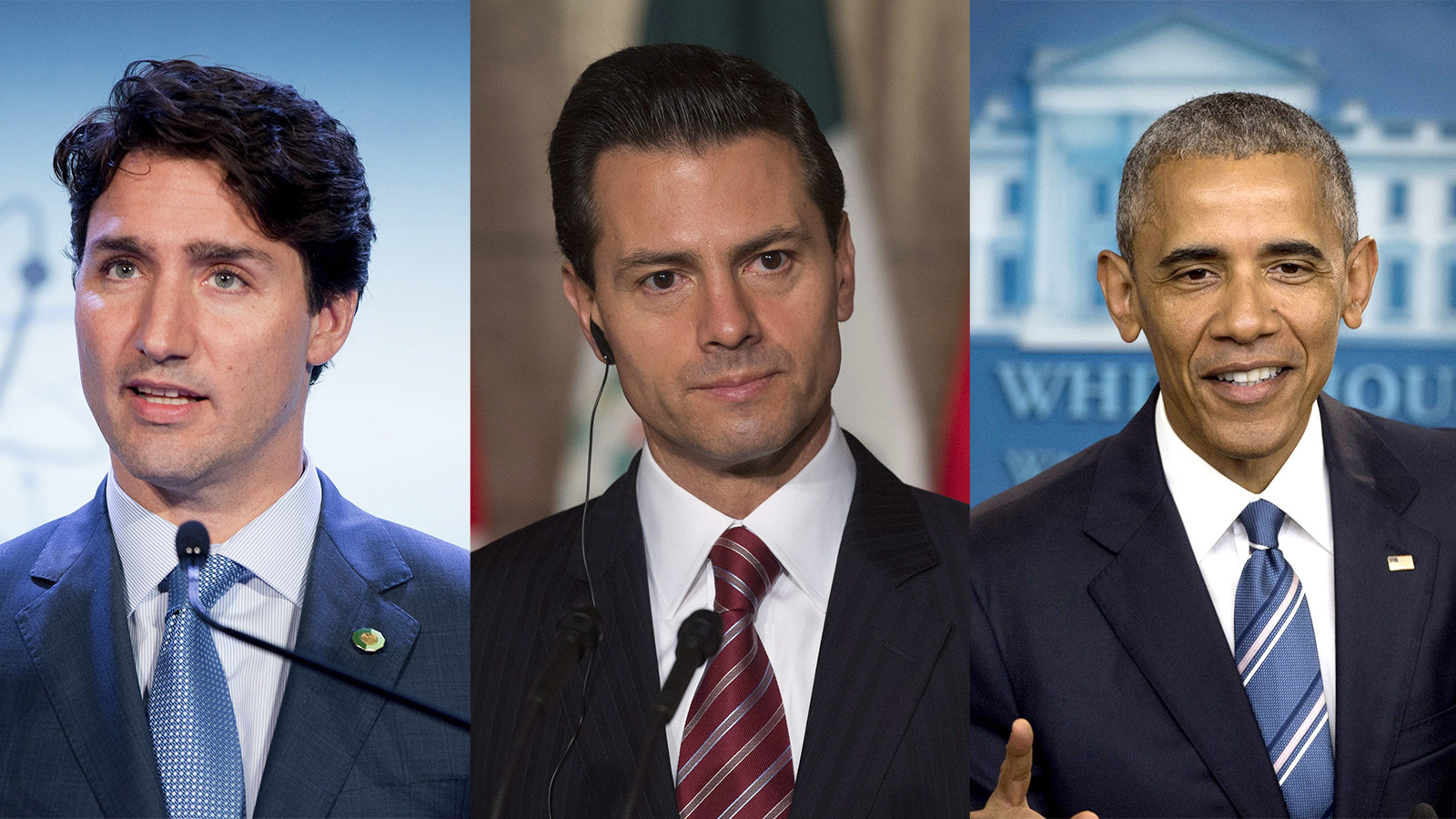
Of course, the pro-NAFTA side has facts of their own to counter Stanford. NAFTA is a trading area of almost 500 million people with a GDP of about $20 trillion dollars. Since 1993, trade between the three NAFTA countries has quadrupled. Lowering tariffs, the argument goes, boosts trade and drops prices of key goods and services. Millions of new jobs have been created and new industries have blossomed as a result of direct foreign investment from the U.S. into Canada and Mexico. Mexico now exports more cars to the U.S. than Japan does, something directly attributable to NAFTA.
Fair enough. For consumers, NAFTA is a good deal, but for workers it can be brutal. They lose well-paying manufacturing jobs to other jurisdictions, which is why all sorts of northern industrial states in the U.S. loathe the agreement. They’ve seen stagnant wages, loss of benefits and a rise in low-paying service jobs. When people experience these losses, they borrow in order to keep the engine of consumption humming. We saw how that movie played out in 2008.
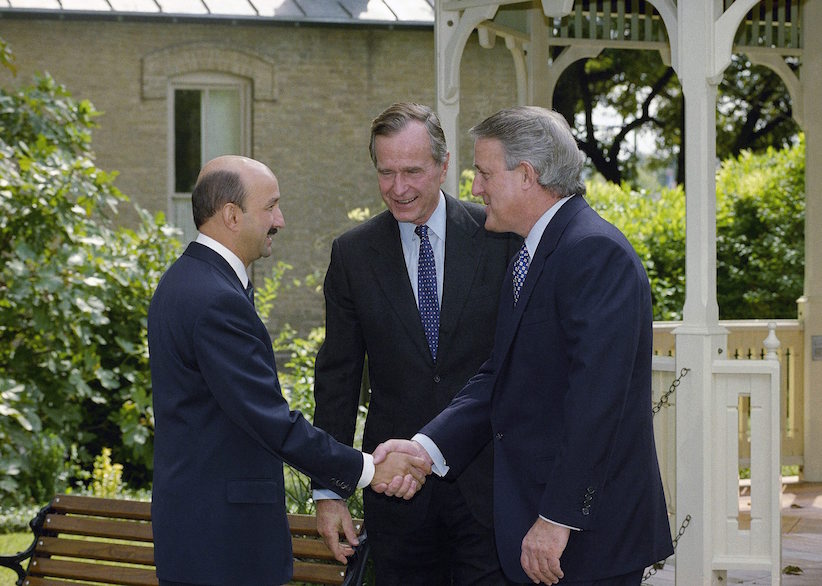
Pro-NAFTA voices believe new jobs are created to offset losses and they like to cite economist Joseph Schumpeter’s theory of “creative destruction,” but those economic ideas are a hard political sell. The truth is, NAFTA does not have a real champion right now. Obama has always been lukewarm on it, while Hillary Clinton has openly attacked the deal. For Trump, it’s a political piñata he swings at regularly. It has been left to that old trade liberalizing war horse Brian Mulroney to pull the NAFTA wagon. In a 2014 Globe and Mail article, he defended NAFTA and urged leaders to be more outspoken about it. “Canada’s trade with Mexico has increased sixfold since NAFTA,” Mulroney wrote. “Investment has doubled since the 1980s.”
In fact, many of the mandarins of trade liberalization from that era still refuse to believe any rational person could actually reject the logic of globalization. “What the Brexit result tells me is that referenda risk results based more on emotion than reason, and binary choices on complex issues are not conducive to rational verdicts,” said Derek Burney, the former Canadian ambassador to the U.S. and former chief-of-staff to Brian Mulroney. “I’m not sure the trade or globalization factors were that much in play in Britain. Seems to me the vote turned on anti-immigrant sentiments and annoyance at the non-accountable nanny-state intrusions from Brussels in everyday life.”
But even Burney concedes that the knock-on effects of the Brexit vote could influence the North American economy. “The anti-free trade rhetoric in the U.S. campaign is a real worry because the effects for Canada and the world could be much more lethal than Brexit, even though trade is not the cause of what ails much of America.”
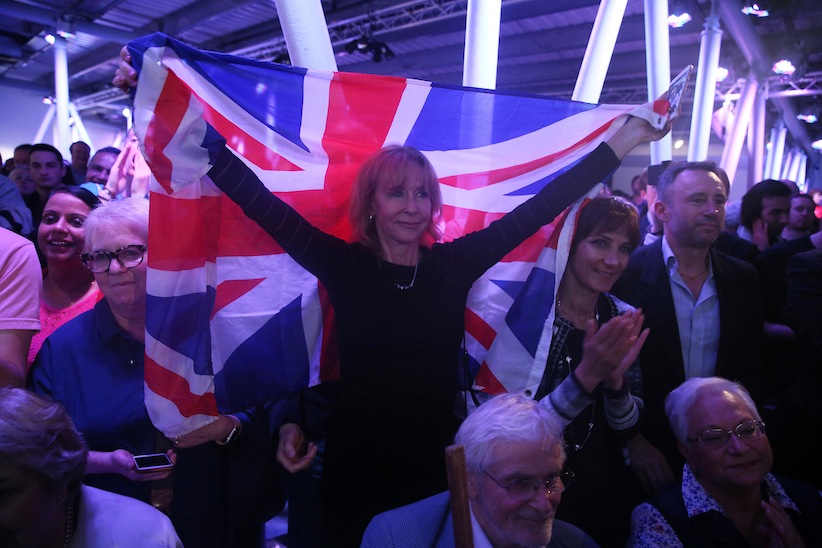
If your political compass is spinning on this issue, you are not alone. Even the patron saint of free trade had complicated positions on the globalization issue: Margaret Thatcher once championed both free trade and the EU, but eventually turned on the project. Her famous anti-EU speech in 1988 could well have been uttered today by the likes of Boris Johnson and Nigel Farage. “We have not successfully rolled back the frontiers of the state in Britain, only to see them re-imposed at a European level, with a European super-state exercising a new dominance from Brussels,” she thundered. It was the foreshadowing of today’s sudden political realignment.
You might think, for example, this overt rise in protectionism would politically benefit the left, but the end of “peak globalization” has changed the partisan world in ways that would make Lewis Carroll leap through the looking glass. For years, the Left carried the anti-globalization banner, from the anti-free trade debates here in Canada in the 1980s to the fight against the union busting days of Margaret Thatcher in the U.K. The 1999 WTO protests in Seattle ushered in a new generation of left-wing progressives, who eventually gave rise to the Occupy Wall street movement. The divide between rich and poor was reviving progressive politics, but something happened on the way to the revolution. Fearing an alliance with people like UKIP leader Nigel Farage—who shared their anti-globalization concerns but who they viewed as an anti-immigrant xenophobe—the left in the U.K. suddenly found themselves in bed with open-market conservatives like British Prime Minister David Cameron. How odd to see the left suddenly campaigning for what was, fundamentally, a pro-globalization movement. From Cameron’s point of view, Labour leader Jeremy Corbyn and his left-wing supporters were, to borrow an old Marxist phrase, the useful idiots of globalization—which is why Corbyn’s career is now doomed.
“The left was all over the place in Brexit but it is wrong to say the left as a whole wanted to remain,” says Stanford. “That was the official policy of U.K. Labour, but support for that view was pretty lukewarm. The left-right axis to the debate was muddled because progressives in the U.K. didn’t want to be on the same side as Farage. Also, progressives are thankful for some of the socially progressive measures the EU has helped them win in the U.K. But the legacy of those measures has been dulled by the EU’s more recent harsh orientation.” In other words, there is total confusion as to where they stand.
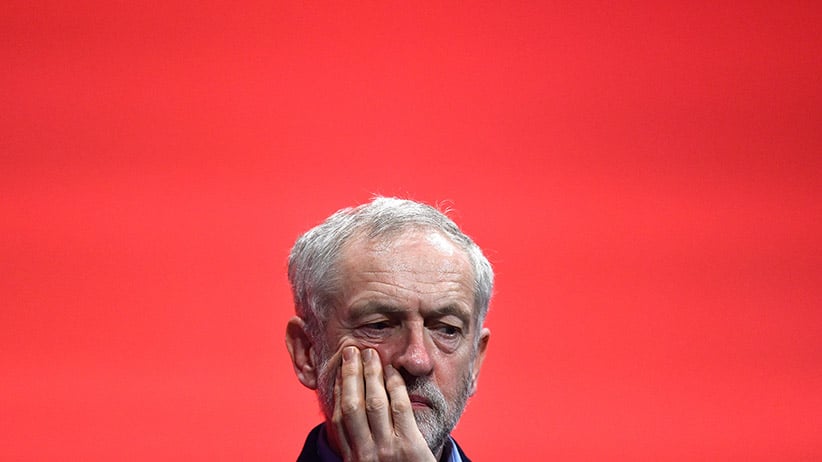
It’s been a clever if dangerous strategy by Trump and Farage to co-opt the left’s anti-globalization rhetoric and overlay it with a politically catalytic anti-immigration message. Progressives now have to figure out how they can extract themselves from the the nativist far right without getting sucked back into the Conservative centre. “Progressive parties worried more about the freedom of movement aspect than the pursuit of globalization agenda writ large,” says NDP MP Nathan Cullen, explaining how Labour ended up supporting a Conservative EU economic vision. “The connection to the outright racist and xenophobic elements of Brexit gave a great many pause to be associated to it.”
Still, Cullen admits the left and the far right actually now have similar messages, which is startling to hear. “Where there is common ground is in the fact that working people haven’t seen a wage adjusted for inflation in almost a generation,” Cullen says. “After the 2008 meltdown the problem of fairness only got worse. We bailed out [the banks] and they gave themselves bonuses. Out-of-touch economic and political elite have fed this ‘movement.’ ”
But what is the movement? In the U.K., both major parties are riven. In the U.S., the Republicans are going through the same split. In Canada, the NDP has lost its way. And even in the centre, where Liberal and red-blue democrats live, it’s getting hard to find a coherent view of growth beyond a kind of situational pragmatism that usually means debt-spending stimulus with long-term promises of balance. Maybe the age of political theory guiding parties is dead?
“I was startled to see [Environment Minister] Catherine McKenna become a free-trade champion, especially given her persistent effort to throttle our energy sector,” says former ambassador Burney, after listening to the minister’s warm words about NAFTA in the lead-up to the Three Amigos summit. “I suspect that this is less conviction on trade and more fear of Trump that is at play.”

The lack of trust in political motivations now afflicts the so-called political elites as much as the ordinary citizen. The result will be less stability and more disorder to come.
“It is still early days for the fallout on Brexit and there will be ‘fissiparous tendencies,’ ” Burney says, using a fancy ten-dollar term historian Paul Kennedy deployed to describe how great empires never last. “But it is not the end of the world, rather the beginning of a new kind of world. Fasten your seatbelt, but do not jump out of the car!”
For Margaret MacMillan, this is not just another political blip. The rise of the angry mudlarkers and the end of peak globalization may unleash dangerous forces of the kind she has spent a lifetime observing. The promise of prosperity for millions has been broken. Opportunists like Marine Le Pen in France, or Donald Trump in the U.S., sense an economic frustration that could bring them their leadership moments. The centre—including Trudeau, Pena Nieto and Obama—have to prove that the system actually works for more people, and can genuinely raise standards of living. The case is getting harder to make by the day. “I have a very uneasy feeling,” MacMillan told me, “that we may look back and say this really was some sort of turning point.”